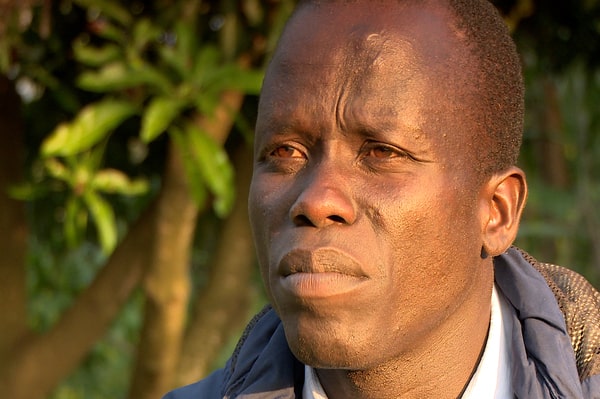A catechist heals the spiritual wounds of South Sudan refugees
WITH AN APOSTOLIC LETTER ENTITLED ANTIQUUM MINISTERIUM released May 11, Pope Francis has formally instituted the office of catechist as a ministry within the Church. The Pope’s move honors thousands of lay catechists around the world. Among them is Joseph Gasi, a catechist serving South Sudanese refugees.
The civil war in the country had robbed John Joseph Gasi of his family, his home, and his cultural roots. “My father, my sister and my brother were killed. It happened in the space of a few minutes,” he explained in an interview with Aid to the Church in Need (ACN).
A brutal conflict is raging in the youngest country on the African continent, a country which has been independent only since 2011. It is all about the pursuit of power, driven by ethnic conflicts. Armed troops are scouring village after village. John’s family didn’t make it. They were killed. He, however, was able to flee to neighboring Uganda, where more than one million South Sudanese are living in refugee camps. Even worse than the extreme destitution and privation reigning there are the scars these people—and particularly the young people—bear on their souls. Many of them were abused as child soldiers during the years of fighting.
John believes that his special mission is helping these people. “Many of them are filled with hate and thoughts of revenge. I talk to them about forgiveness.” An undertaking that many would consider almost hopeless, even naïve. John is convinced that this is not the case. He has lost almost everything—but not his faith in God. That is what led him to undergo training to become a catechist. He himself prefers the name “evangelizer:” bringing the Good News to the poor and desperate.

ACN donated the funds for his training. The Emmaus Center near the Ugandan capital of Kampala teaches young people to heal the wounds inflicted upon the souls of their fellow countrymen and to stand by them as they deal with various hardships. A completely different and more promising “battle” than the acrimonious war raging in his homeland. John declares, “I am now a soldier for Jesus. I fight to bring souls back to God.”
John visits his fellow countrymen, who are working to scrape together a new life for themselves in Uganda—a life without violence and war. “I want to bring life back to the South Sudanese.” He talks about the faith, gives comfort, listens to the horrific stories of the traumatized and arranges assistance for them. John and his fellow catechists not only received catechetical training at the Emmaus Center, they also studied the fundamentals of psychology. Alcohol abuse is a growing concern among the refugees who are struggling to overcome their war experiences, poverty and unemployment.
The “battle” against the after-effects of the war continues. However, John is convinced that, in the end, it will be worth it. “I thank ACN for its support. I can now bring hope and love to my people,” he says.
“We are very excited about the most recent Apostolic Letter Antiquum Ministerium, with which the pope has established the ‘lay ministry’ of catechist with its own Rite of Institution,” Regina Lynch, director of projects at ACN said.
“Our project work in more than 140 countries has shown us that in many places of the world catechists are the backbone of the Church,” Lynch continued. Particularly in remote regions where priests can only rarely visit their parishes, or in countries where war and persecution make it difficult to carry out parish work, catechists are contact, helper and pastoral care worker, all in one, she explained.
“The catechists in charge of pastoral services in regions where there are no priests, sometimes even pay for their courage and devotion with their lives. A particularly moving example is that of Philippe Yarga from the diocese of Dori in Burkina Faso.” Yarga, who was responsible for the coordination of pastoral services in the eastern part of Burkina Faso at the border to Nigeria, was killed by terrorists on Feb. 16th, 2020. He is survived by seven children, the youngest of whom was born six weeks after his death. “The catechists in Burkina Faso and in other countries of the Sahel region are directly affected by the terrorist threat and are sometimes forced to flee with their families in the darkness of the night. For this reason, one of ACN’s relief projects in Burkina Faso focuses on helping 18 displaced catechetical leaders and their families to survive,” Regina Lynch said.
In 2020, ACN supported the formation of more than 18,000 lay leaders and catechists around the world.
—Tobias Lehner

